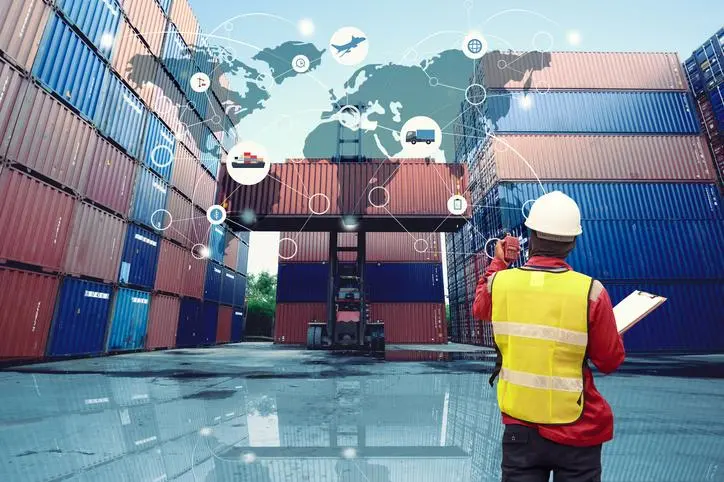PHOTO
Dubai Airport Freezone Authority (Dafza) has announced that its non-oil foreign trade last year hit Dh146 billion ($39.7 billion) up 62 per cent over 2017. Its contribution to Dubai's non-oil foreign trade was put at 11 per cent compared to 7 per cent the year before.
Unveiling the 2018 non-oil sector results, Dafza said it has shown resilience and steady growth with 2018 results reaching unprecedented performance with five per cent growth in net profit, a four per cent increase in EBID, an 8 per cent increase in total revenue, as well as an increase of three per cent in total assets versus 2017.
Dafza pointed out that its 2019 budget has increased significantly to Dh1 billion ($272 million), thanks to its investment in new expansion projects estimated at around Dh780 million.
This represents 78 per cent which comes in support to its commitment to increasing its contribution to Dubai non-oil trade.
Following the free zone's decision in mid-2018 to reduce its set up costs by 65 per cent, the zone witnessed a clear 22 per cent increase in registered companies versus last year, it stated.
Sheikh Ahmed bin Saeed Al Maktoum, Chairman of Dubai Civil Aviation Authority and Chairman and Chief Executive of Emirates Airline and Group, said that trade was one of the key sectors driving Dubai’s growth, supported by the emirate’s long standing of being a gateway for global trade.
Dafza’s results achieved in 2018 are a direct reflection of Dubai’s strong economic growth and in line with the path taken by Dubai’s leadership for revenue diversification, he noted.
These results confirm that Dafza continues to play a vital role in achieving the strategic goals of strengthening Dubai's non-oil economy, with foreign direct investment through attracting global capital and major multinational organisations," remarked Sheikh Ahmed.
"This also encourages investors to establish their business within a stable economic environment and to expand their investments operating locally in the UAE and regionally through the free zone," he stated.
"The zone’s unique value proposition encourages investors to set up their businesses in Dafza where they benefit from the competitive environment on offer and the high flexibility in the midst of global economic fluctuations," he added.
He went on to say that these carefully-laid plans and ambitious strategic initiatives support the strategy of economic diversification in line with the Dubai 2021 Plan.
The government’s plans to move to the post-oil era have played a major role in achieving these results, as well as the continuous efforts of all those who develop and implement these initiatives.
Dafza’s non-oil foreign trade volume climbed 62 per cent in 2018 to reach Dh146 billion. This is largely due to the strong growth in exports and re-exports which stood at Dh83.3 billion in 2018, an increase of Dh39.5 billion, a 90 per cent growth versus 2017, while imports increased by 35 percent from 2017 to reach Dh62.5 billion.
This resulted in a significant surplus in Dafza’s trade with Dh21 billion in 2018. This has confirmed once again the quality of Dafza’s world-class services, and the positive impact of the initiatives and incentives provided by the free zone to foreign investors.
Dafza Director General Dr Mohammed Al Zarooni said: Non-oil foreign trade growth in 2018 is a clear indication that we are adopting the right strategies. Our competitiveness has appealed to a wide spectrum of companies from around the world which seek to take advantage of Dubai’s position as regional and international trading hub."
He also highlighted the importance of strategic targeted marketing campaigns implemented during the past year, which has proven Dafza’s ability to attract businesses, retain them and act as a catalyst for their growth.
Dafza’s data revealed that non-Arab Asian countries accounted for 46 per cent of Dubai’s non-oil trade last year amounting to Dh66.5 billion. India topped the list with Dh24.1 billion worth of trade, accounting for 16.5 per cent of the total.
This was followed by China which accounted for Dh24 billion worth of trade in the non-Arab Asian countries category, (16.4 per cent), said the statement from Dafza.
Arab countries ranked right behind at 27 per cent with a value of Dh39.5 billion, where GCC countries comprised 62 per cent at a value of Dh24.5 billion. European countries came in at third place with 22 percent of trade valued at Dh32 billion with Switzerland topping the list with Dh23 billion trade accounting for 15.6 per cent, it added.-TradeArabia News Service
Copyright 2019 Al Hilal Publishing and Marketing Group Provided by SyndiGate Media Inc. (Syndigate.info).





















